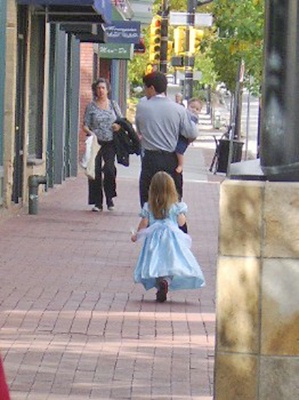All Nonfiction
- Bullying
- Books
- Academic
- Author Interviews
- Celebrity interviews
- College Articles
- College Essays
- Educator of the Year
- Heroes
- Interviews
- Memoir
- Personal Experience
- Sports
- Travel & Culture
All Opinions
- Bullying
- Current Events / Politics
- Discrimination
- Drugs / Alcohol / Smoking
- Entertainment / Celebrities
- Environment
- Love / Relationships
- Movies / Music / TV
- Pop Culture / Trends
- School / College
- Social Issues / Civics
- Spirituality / Religion
- Sports / Hobbies
All Hot Topics
- Bullying
- Community Service
- Environment
- Health
- Letters to the Editor
- Pride & Prejudice
- What Matters
- Back
Summer Guide
- Program Links
- Program Reviews
- Back
College Guide
- College Links
- College Reviews
- College Essays
- College Articles
- Back
The Effects of Disney Princesses on a Society
We’re all too familiar with fairy tales, starting with that notorious “Once upon a time” and ending with the stereotypical “Happily ever after.” The stories that all little girls know and love. About the girl getting swept off her feet by a handsome prince and live the rest of their days happy. And I won't lie, I too have fallen in love with these movies, dreamt of being whisked off to a life full of happily ever afters. But is this truly realistic? More importantly are these the thoughts that should be put into the minds of young children?
Let's take Ariel for instance. The protagonist of the 1989 movie, The Little Mermaid. An independent and determined young woman with an extraordinary imagination. She spends her days singing, daydreaming and adventuring. One night Ariel notices a shipwreck and hurries over to see what happened. She sees a male human, Eric, drowning and quickly carries him up to the shore. After this is seems as though she spends every waking moment thinking about him, her “true love”. She seems to forget all about her previous hobbies, her curiosity and sense of adventure die down, and the number one thought on her mind is seeing her prince again. So much so that she trades her own voice, the one thing that she is proud of and makes her unique, with the opportunity to walk on land, to go and find her prince. Eventually, they met and got married. She gave up everything thing she was and everything she believed in for her “happily ever after”
Then there’s Cinderella, the kind girl who puts her friends before anything. Despite being forced to live out her days as her cruel stepmother and stepsisters housemaid, she remains optimistic and believes that if you keep on believing, that all your dreams shall come true. One night, when her life seems to be especially bad, a fairy godmother appears and gives her a pretty dress and sends her off to the ball. The prince notices her and they fall in love.
What lessons are these tales teaching young girls about life? That you should give up everything you have for a boy? That when your life starts to get difficult a “fairy godmother” will come and make things right? That you should hide your true self and keep your flaws hidden so that people will like you? That you can fall in love after one look and everything will work out perfectly? These are not the kinds of things that should be taught, especially at such a young age. Such unrealistic depictions of a “happy ending” can seriously hurt a young girl's self-esteem. Especially if she does not measure up to the certain “beauty” of these characters. Every girl wants to be a princess, but not everyone can be if being a princess means to be rich and conventionally beautiful.
So what can be done to change this? Firstly, we can change the way Disney movies depict a “Happy Ending.” A happy ending should be taught to be a girl finally becoming confident within herself. That being different is completely okay and you shouldn't hide your true self from anyone. That you are the most important person in your life and no one can take that away. With the right guidance, we can empower young girls until they can take on the world.

Similar Articles
JOIN THE DISCUSSION
This article has 0 comments.

I was thinking about the movies that Disney has made and tried to figure that key message behind all of them. I realized that in almost every story, the main moral of the tale seemed to be about changing yourself to make another person happy, or that you cannot be independent. I wanted to write and about and address these completely false expectations that are being forced towards children. Everyone is beautiful, and everyone can do whatever they want, so long as they are determined.